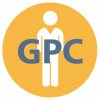Diversity and Inclusion Language


I'd love to start a discussion about how we as grant professionals can impact diversity and inclusion by using better language in our grant proposals.
One example would be using individuals experiencing homelessness instead of the homeless, so we don't label people by their condition.
Another would be replacing underprivileged and minority with something more specific. Underprivileged is used to vaguely describe people across race, class, religion, ability, etc. without naming the specific forms of oppression. Be specific. For example, if you’re using this word but actually mean black people, say that.” And “Minority replaces a group’s actual identity with their total population numbers, and minor can convey the sense of being lesser. Instead be specific or say “historically oppressed” or “marginalized groups.
Julie Assel, GPC
President/CEO
Comments
-
Thank you for getting this discussion started, Julie!
The Christopher and Dana Reeve Foundation has a great resource for discussing people with disabilities and they echo your point about labeling people. They also have some really good examples of common ways that individuals with disabilities are referred to, and how that impacts our approach to working with them.
I'd love to hear from some more experienced grantwriters. By day, I'm a Client Success Manager for Foundant's products for grantmakers and scholarship providers, and by night/lunch hours/weekends I volunteer with a local organization to do some grantwriting for a campaign to build an accessible playground in our community.
11 -
This article further explains why language is important. I imagine their are Foundant users out their doing asset-based grantmaking.
5 -
We've been doing some really focused training on race, equity and inclusion in our organization. Since I work with 20 programs i have the opportunity to remind others about how we describe groups of people. I've been practicing quite a lot. The one verbiage group that I find challenging is talking about 'older people'. In the field I'm seeing folks discourage the use of seniors, retirees and elderly. I've been using older Americans but that doesn't seem specific enough. Sometimes use people over 65 years or something like that but there isn't always an age cut off on the program or grant. Any ideas for how you've described this group?
1 -
I think this document is very useful--both for language use and gaining general knowledge.
4 -
Thank you so much for sharing!! This has so much information pulled into one helpful document!
2 -
What a great resource! thank you @ericaholliam
1 -
I would welcome any new resources on this topic. The language is evolving quickly.
Here is a guide from Harvard Medical School but it is almost a year old and I wonder if some terms have changed.
2 -
I LOVE these resources. I'm just now reading the book, The Sum of Us, by Heather McGhee, and it's excellent. The SumOfUs Progressive Style Guide is great--so informative. And the blog post about asset-based work is superior. I've just added both of these to the resource page on my website. Thanks for sharing!
4 -
Thanks for this discussion. I have worked for years serving people with disabilities, and I feel pretty comfortable and well-versed in People First language. I'm happy to be a resource on that topic. However, I am still learning when it comes to racial, ethnic, and socioeconomic descriptors that are positive and respectful. I recently wrote a grant proposal to support my agency's DEI efforts, which was also a great learning experience about appropriate language. Eager to continue learning!
2











